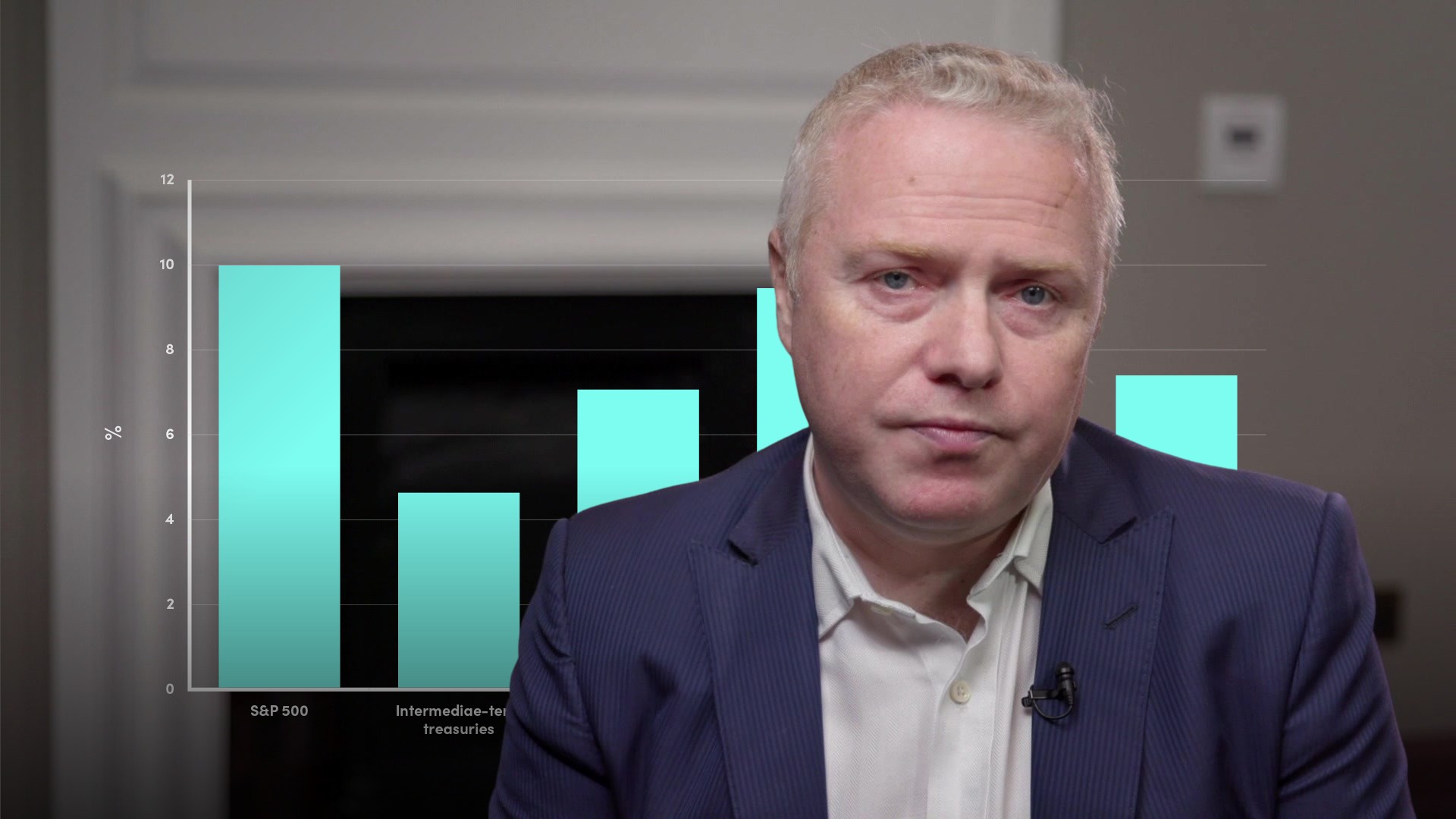
Hedge Fund Investors and Historical Performance

Trevor Pugh
20 years: Trading & hedge funds
In the second video of this series, Trevor identifies who invests in hedge funds, and the key requirements investors use when assessing investment decisions. He then moves on to the performance of hedge funds over the last three decades.
In the second video of this series, Trevor identifies who invests in hedge funds, and the key requirements investors use when assessing investment decisions. He then moves on to the performance of hedge funds over the last three decades.

Hedge Fund Investors and Historical Performance
6 mins 15 secs
Key learning objectives:
Identify who invests in hedge funds
Understand how hedge funds use leverage to generate returns
Learn how hedge funds have performed
Overview:
A wide variety of investors choose to invest in hedge funds with pension funds being the largest category. They are drawn to hedge funds thanks to the low correlation with their other assets and ability to generate alpha, or excess returns. These returns are generated with the use of leverage or borrowing which allows hedge funds to take risks in excess of regular funds. Although hedge funds have underperformed the S&P over the last 25 years, they have been less volatile and provide a better investment on a risk adjusted basis.
Who invests in hedge funds?
The main investors in hedge funds are pension funds, accounting for over 40% of all hedge fund assets. This is split between public and private-sector pension funds. In addition to pension funds, hedge funds draw their assets from a mixture of Endowment plans, Sovereign Wealth Funds, Foundations (or charities), Asset Managers and Insurance Companies. These investors tend to be drawn to hedge funds as a way of diversifying their portfolio and adding alpha to their holdings (in other words, outperforming indices).
How do hedge funds use leverage to generate returns?
The use of leverage is a very important driver of the performance of hedge funds. This differentiates such funds from more traditional long-only funds. A pension fund, for example, might have $100 million in client funds. It would simply invest these funds in equities, bonds and other assets worth a total of $100 million. A leveraged investor, however, could buy well in excess of $100 million in assets, using the assets themselves as collateral to borrow money to make up the full price. This is similar to how a mortgage works: the buyer might put down a $10,000 deposit for a $100,000 house and borrow the balance from the bank. Obviously, leverage will magnify gains and losses. If the value of the house rose by just 10% to $110,000 the buyer would have doubled their money.
How have hedge funds performed?
From 1994 to 2019, an index of hedge funds lagged the S&P 500 by 2.2%, returning 7.8% compared to 10% for the S&P according to one study. However, the hedge fund was 44% less volatile. On a risk-adjusted basis, the hedge fund is the better investment. The problem is that there is huge variability in hedge fund returns by sector and fund. Just as with picking stocks, choosing the right fund is crucial. Over the same period, hedge funds underperformed a simple 60% equity, 40% bonds portfolio. This is not really a surprise. The last three decades have seen interest rates move continually lower, which increases the value of both equities and bonds, all other things being equal.

Trevor Pugh
There are no available Videos from "Trevor Pugh"

